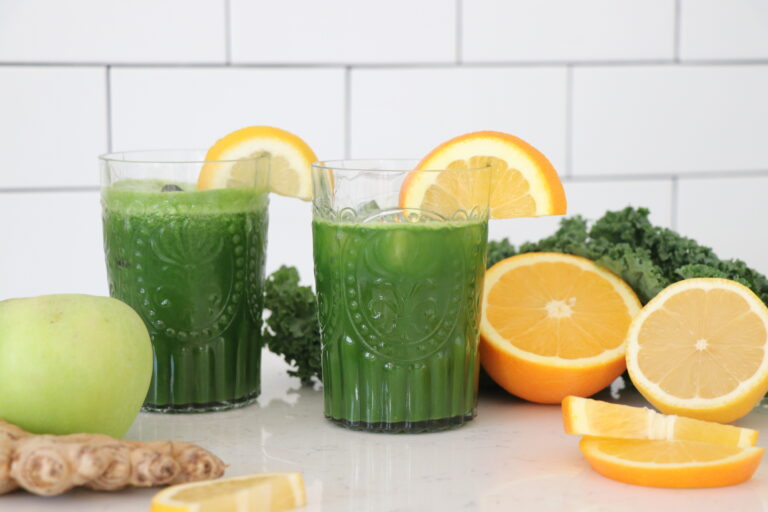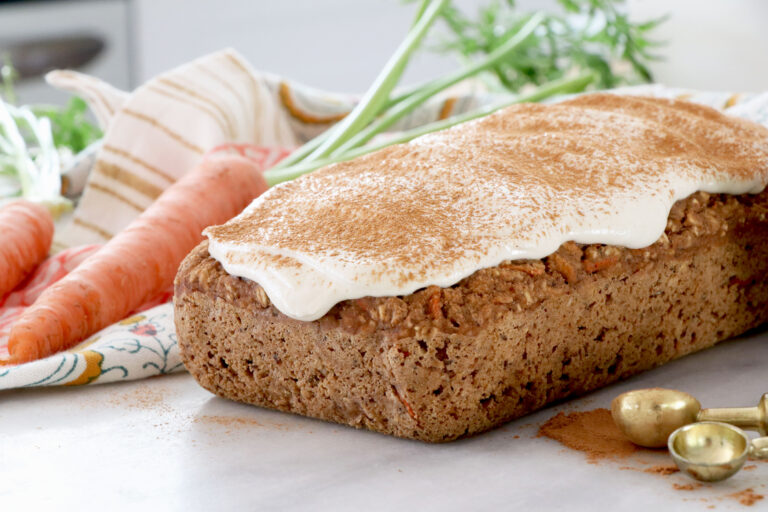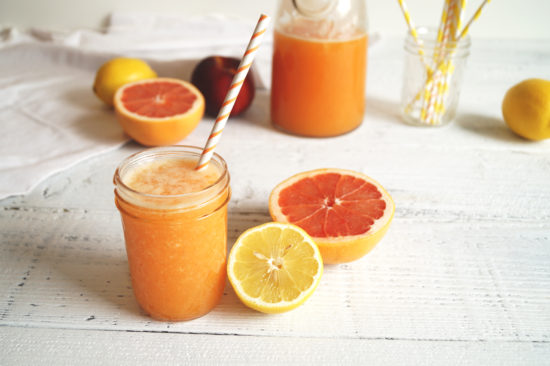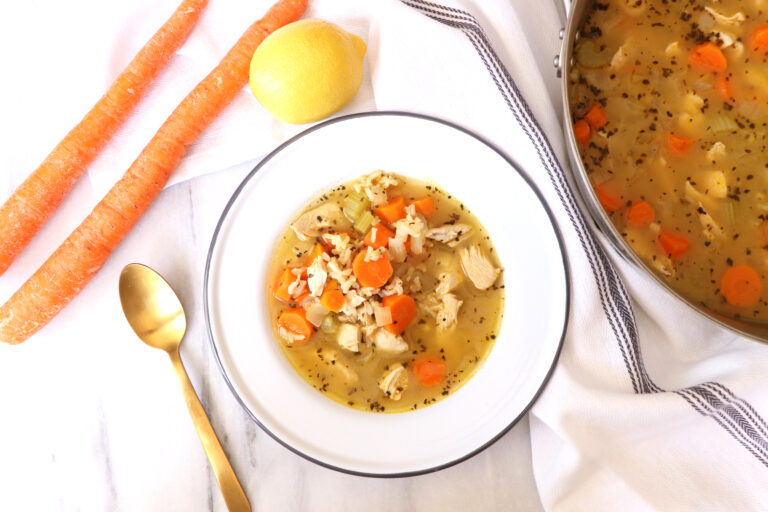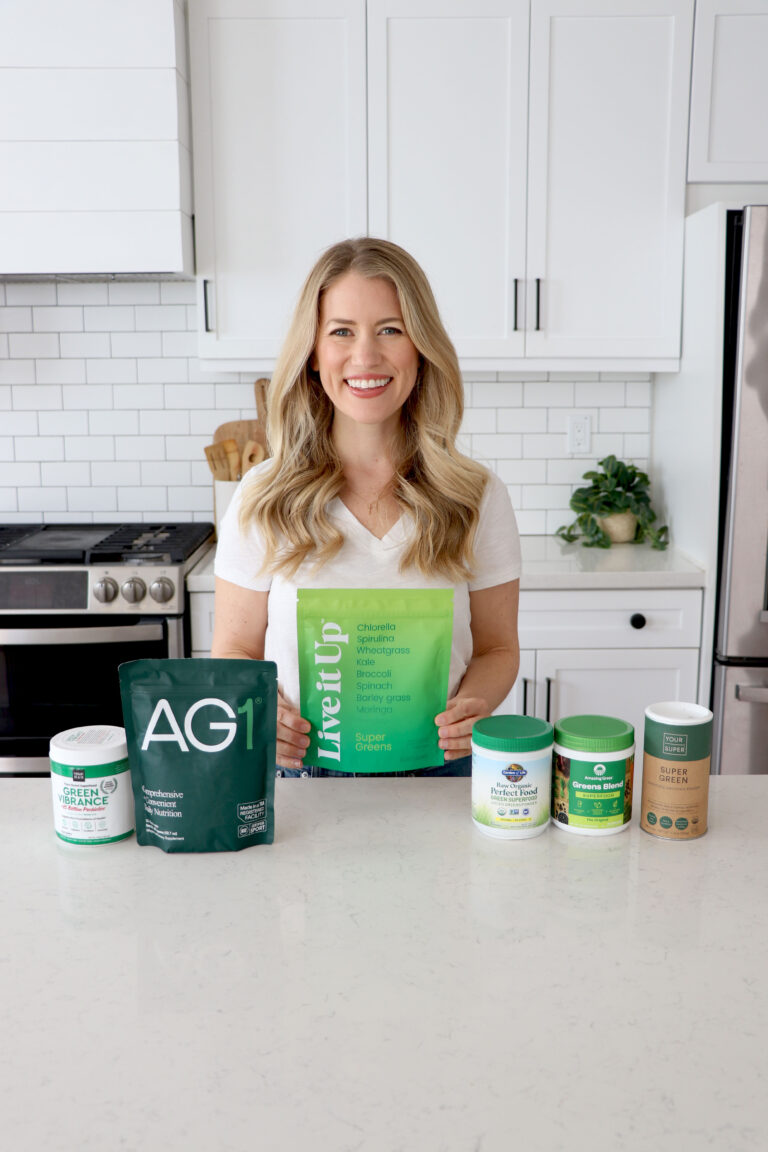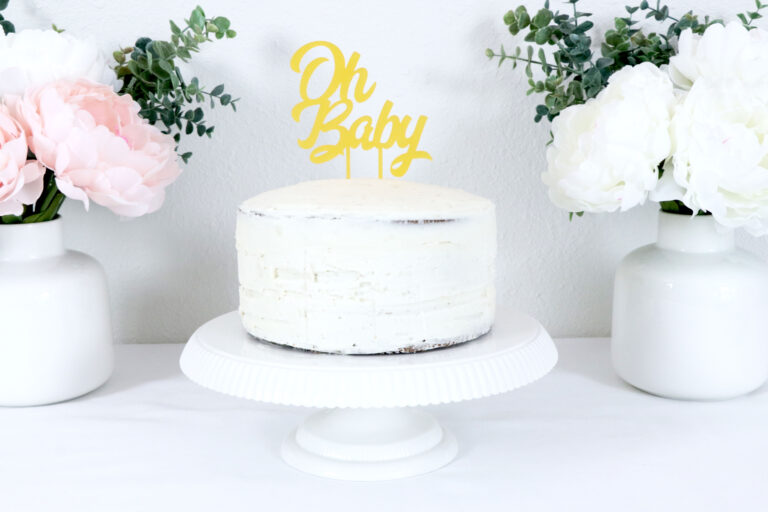How To Make Oat Flour
Oat flour is a great option for gluten-free baking. Oats are nutritious and packed with fiber, protein and a variety of vitamins and minerals. I love the quality texture that oat flour provides to baked goods, whereas some other gluten-free flours result in a grainy, dry or gummy consistency. Oat flour is easy to make at home and today I’ll share with you how to make oat flour!

Health Benefits of Oats
Oats are a naturally gluten-free whole grain that contain fiber, protein, vitamins, minerals and antioxidants.
Oats contains a type of soluble fiber known as beta-glucan. Beta-glucan creates a gel-like consistency in your gut which provides a variety of health benefits from:
- Supporting the growth of good bacteria in the gut
- Helping to lower LDL (bad) cholesterol
- Helping to reduce blood sugar levels
- Increase the feeling of satiety and fullness
- Helping to manage energy levels
Nutritional Highlights of 1/2 cup of Dry Oats
The following nutrition facts are based on one 1/2 cup serving of dry rolled oats:
Calories: 180
Protein: 5 grams
Fiber: 3 grams
Zinc: 13.4% of your Daily Value
Manganese: 63.9% of your Daily Value
Folate: 3.2% of your Daily Value
Vitamin B1: 15.5% of your Daily Value
Iron: 9.4% of your Daily Value (DV)
As well copper, calcium, phosphorus, potassium and other B vitamins.
Different Types of Oats
There are 3 main types of oats you’ll see at the grocery store and that includes quick oats, rolled oats and steel cut oats.
Rolled Oats: Rolled oats are also known as “old fashion oats”. This type of oats start out whole, then the husk is removed leaving what is called an oat groat. The oat groats are steamed and flattened between heavy rollers to yield a thin rolled oat. Rolled oats are the most popular type of oats in the world.
Quick Oats: Quick oats are the most processed form of oats and have been steamed and rolled very thin. This process allows the oats to absorb water and cook in a very quick amount of time! The difference between rolled oats and quick oats is that quick oats are steamed for a longer period of time before they are rolled.
Steel Cut Oats: Steel cut oats begin as a whole oat, with the husk removed creating an oat groat. Then the oat groats are chopped into several pieces, instead of being rolled. This process results in steel cut oats taking longer to cook / prepare than rolled or quick oats.
How To Buy Gluten-Free Oats
For anyone with Celiac Disease or a gluten-sensitivity it’s best to buy oats that have the Certified Gluten-Free Seal which ensures that the oats truly are gluten-free. While oats are naturally gluten-free, depending on where and how they are processed they may be exposed to cross contamination of other grains that contain gluten.

How To Make Oat Flour
To make oat flour start with rolled oats (also known as old fashion oats) and place them in the a blender. I use a high-speed blended such as this one. Blend on high until you create a fine flour like powder. You may need to stop blending and scrape down the sides or stir the oat mixture back down into the blender if the oats are sticking to the side. Repeat blending until all the oats are fully blended into a fine flour. Then measure out the exact amount of flour you need to match your recipe!
Tip, if your recipe calls for 2 cups of flour you’ll need to blend a little more than 2 cups of dry oats to ensure the proper yield of flour.

Oat Flour
Print RecipeIngredients
- 2 cups rolled oats
Instructions
- Add rolled oats to a high-speed blender and blend until you create a fine flour consistency
- You may need to pause blending, then scrape down the side of the blender to reincorporate all of the oats, then blend again

Recipes Made With Oat Flour
Orange Cranberry Oatmeal Bread
Lemon Blueberry Breakfast Cookies
Healthy Recipes On Instagram
For more healthy recipe ideas, follow me on Instagram here! I’d also LOVE to see any recipes you that you create form the Healthy Grocery Girl Blog! Please tag me @HealthyGroceryGirl!
